Speculation about the 2024 Nobel Prize in Literature currently focuses on two names: Chinese Tan Tuyet and Australian Gerald Murnane.

Prize Nobel Prize in Literature The prize has mainly honored Western authors since it was first awarded in 1901, but this year many experts believe the Swedish Academy will want to look beyond Europe and the United States.
Since no shortlist of candidates is officially announced, rumors flare up again during the awards ceremony in early October every year.
Who will win?
This year, many believe that Chinese female writer Tan Tuyet will win the prize (she is the leader on many betting sites).
Another name that is often mentioned is Australian novelist Gerald Murnane (who, in addition to his literature, is famous for never having been on a plane).
Often compared to Franz Kafka, Tan Tuyet's experimental style transforms everyday trivialities into surreal atmospheres - a style described with the adjective "kafkaesque".
Giving her the award could also be the Academy's way of "making amends" for having overlooked Kafka himself.

However, the Academy also often chooses lesser-known authors to honor, because being awarded the Nobel Prize is the fastest way for a writer to become known to the public.
"I think they have done a lot of work to find authors who can make literary critics gasp," said Bjorn Wiman, culture editor of the Swedish newspaper Dagens Nyheter, comment.
2021 was perhaps such a case, with Zanzibar-born British writer Abdulrazak Gurnah being awarded the prize for works exploring diaspora, colonialism and racism
Or in 2016, when American folk-rock icon Bob Dylan was awarded.
Wiman predicts this year's prize will likely go to a Mexican, Argentinian, or African author. "I think it will be a woman from a language area outside of Europe," he says.
Wiman also shared that if given the choice, he would choose Indian-born British writer Salman Rushdie, who became a symbol of freedom of speech after receiving death threats for his 1988 work, The Satanic Verses , once declared blasphemous by Iran's supreme leader.

Rushdie was also stabbed by a fanatic and lost his right eye at an event in New York in 2022, making him meet many of the Nobel's non-literary criteria.
Unfortunately, in this time of righteousness, if the prize were awarded to Rushdie, also a familiar name mentioned every Nobel season, "they (the Academy) would be accused of honoring another middle-aged man," Wiman commented.
Last year, the prize went to a middle-aged man, and a white man too: Norwegian writer Jon Fosse.
Nobel Prize in Literature: European, male chauvinist?
Since its inception, the Nobel Prize in Literature has been a European prize, and one that has been dominated by men. Of the 120 laureates, only 17 have been women, and eight of those have been in the last 20 years.
While 30 English-language and 16 French-language authors have been awarded the prize, only one Arabic-language author has ever received a Nobel Prize: Naguib Mahfouz (Egypt), in 1988.
As for China, "it's a vast literature" that is almost completely unrepresented in the history of the Nobel Prize for Literature, according to Carin Franzen, a professor of literature at Stockholm University.

The most recent Chinese author to receive the award was Mo Yan, in 2012.
One reason for the bias could be the lack of linguistic diversity among the judges, according to Victor Malm, culture editor at the Swedish daily Expressen .
This year, his prediction is Antigua-American writer Jamaica Kincaid. "I find it hard to believe that a Hindi writer would suddenly win the prize. There's no one in the Academy who speaks Hindi, so they wouldn't have the credibility to do something like that," Malm said.
Arabic has 370 million speakers worldwide, Chinese is 1.3 billion people, and Hindi is 350 million.
However, it must also be noted that the Academy, in modern times, has consulted more experts and tried to make the awards more representative.
Since 2021, they have added language experts, so that the assessment is no longer based solely on translations.
“It’s obviously different to read the original,” says Lina Kalmteg, a literary critic at Swedish public radio SR. However, Ms. Kalmteg also says that it’s rare for a writer to be considered by the Academy “whose work has never been translated into Swedish.”
Historically, for the past 200 years or so, Europe has actually been considered superior, at least in terms of literature, according to Rasmus Landstrom, a literary critic at the Swedish daily Aftonbladet.
In the past, the Academy has “said it like it is.” But the jury’s deliberations, sealed and not opened for 50 years, show that it too has struggled with Eurocentric bias for decades, Landstrom says.
Especially after the 2018 "MeToo" scandal that greatly embarrassed the Academy, they promised to expand the Nobel Prize's representation, both geographically and linguistically.
“So it's interesting to see who they'll pick from this non-Eurocentric perspective,” says Franzen. Personally, he picks Canadian poet Anne Carson.
Source



![[Photo] Worshiping the Tuyet Son statue - a nearly 400-year-old treasure at Keo Pagoda](/_next/image?url=https%3A%2F%2Fvphoto.vietnam.vn%2Fthumb%2F1200x675%2Fvietnam%2Fresource%2FIMAGE%2F2025%2F12%2F02%2F1764679323086_ndo_br_tempimageomw0hi-4884-jpg.webp&w=3840&q=75)
![[Photo] Parade to celebrate the 50th anniversary of Laos' National Day](/_next/image?url=https%3A%2F%2Fvphoto.vietnam.vn%2Fthumb%2F1200x675%2Fvietnam%2Fresource%2FIMAGE%2F2025%2F12%2F02%2F1764691918289_ndo_br_0-jpg.webp&w=3840&q=75)



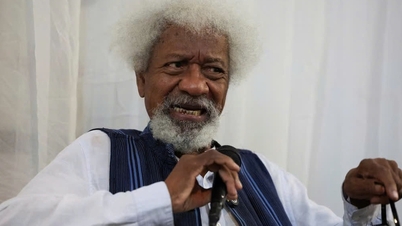

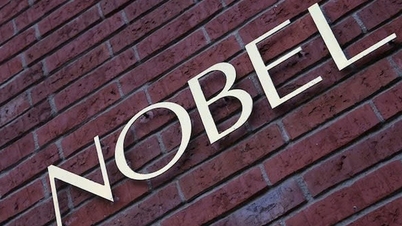




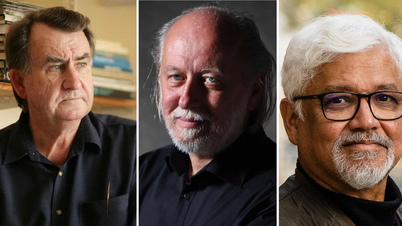











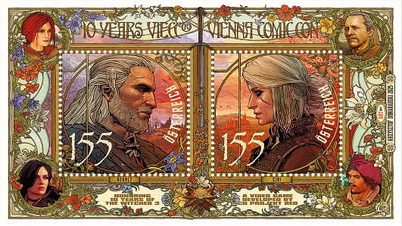



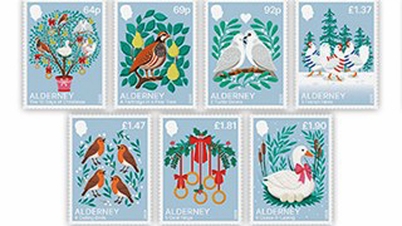












![[Video] Protecting World Heritage from Extreme Climate Change](https://vphoto.vietnam.vn/thumb/402x226/vietnam/resource/IMAGE/2025/12/03/1764721929017_dung00-57-35-42982still012-jpg.webp)





























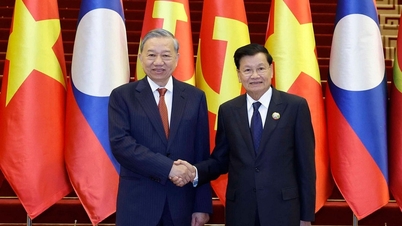





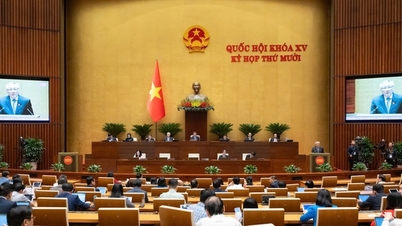



























Comment (0)